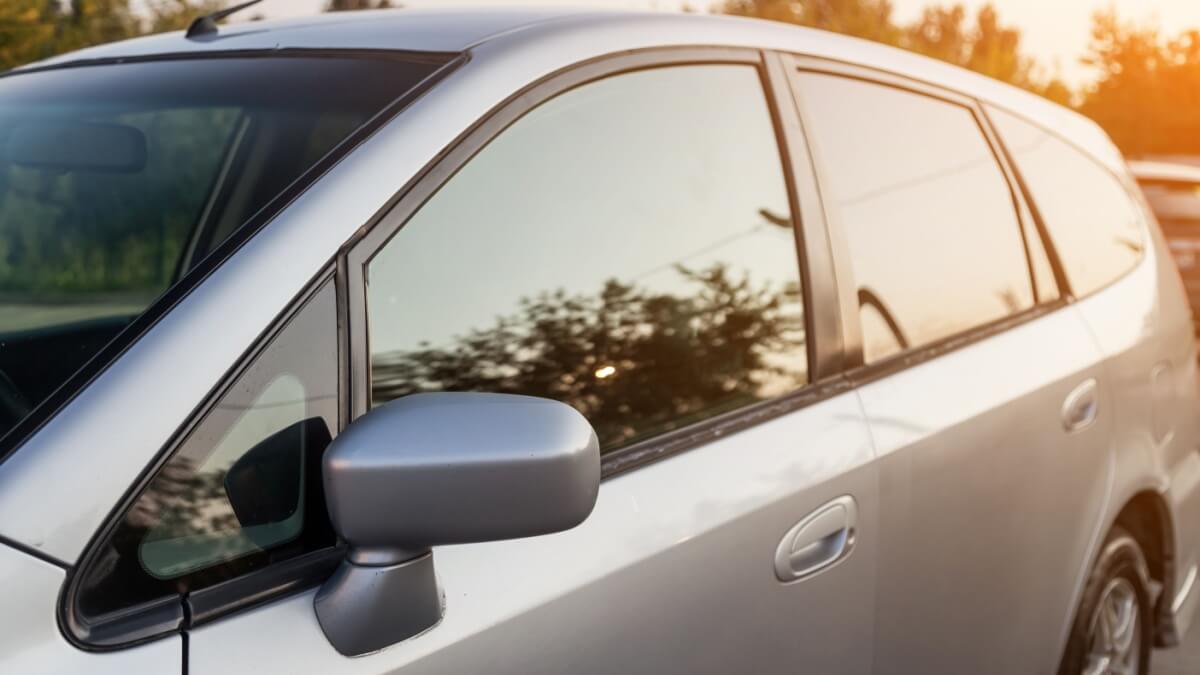Complete Guide to International Money Transfer with Ria in New Zealand
Send money worldwide with Ria Money Transfer: this guide for NZ residents covers how to send money overseas, Ria's transfer fees, and exchange rates.

Many Japanese car brands are household names: Lexus, Toyota, Mitsubishi, Mazda, Nissan, Honda and more. With headquarters in the country, Japan can be a cheaper place to purchase a vehicle or have more options.
Importing a car is allowed in New Zealand, but there are some regulations so being prepared can help make this process simpler and worth it. If you are considering importing a car from Japan, continue reading to learn how to make a purchase, compliance protocols, transporting the vehicle and how much it may cost.¹
The first step for getting a car from Japan is finding one you like. You may already have your heart set on a make and model, or you could be shopping around for the best option that fits your needs or budget.
You have two main options when finding and purchasing a car in Japan- Japanese car auction websites and working with importers and agents. Let’s jump in.
There are car auction websites in Japan that can help you get the car you’re looking for. Here are some to check out:
Many auction websites carry used cars, which are an option if you want to bring down your overall costs. To learn more about a car’s history, record and mileage consider using tools like the Japan Automobile Appraisal Association (JAAA).
Car auction websites can also work directly with you to find and purchase the car you’re looking for.²
If you’re low on time or want additional support and ease, importers or agents can help you find, purchase and ship a car. They simplify the process and often have experience in exporting from Japan.
Importers and agents can navigate the automobile networks to find specific cars you’re looking for or provide you with suitable options. They can help with language barriers and paperwork and use their network to find the vehicle you want. There will be a fee for their service, and that can vary depending on who you go with.
However, choosing a reputable importer or agent is very important. There can be shady actors online, so you want to make sure you contact one with a history of working in the space and solid reviews. Shop around and compare their years of experience, services offered, fees, and overall customer service to find one you feel comfortable with.
It’s essential to ensure that those you work with understand New Zealand regulations as well. Head to the next section for more information.
One of the most challenging parts of buying a car from abroad is ensuring its condition is accurate and per expectations. Here are some ways to check your soon-to-be car’s condition so you don’t end up with a car with unwanted surprises:
Keep in mind that one of the best tips is to work with a partner in Japan that you trust. Ensure you are happy with their communication and customer service before heading to the finish line.³
New Zealand has regulations that an imported car must meet to be allowed on the road. Here is what you must provide to New Zealand authorities:
While these are just a few things, there are also other restrictions. See below for more.
Consider regulations when choosing your car in Japan; if you don’t, you may be unable to drive it in New Zealand.
The age of your vehicle is important when it comes to emissions and safety regulations. As per the Clean Card Standard (CCS) in New Zealand, you may be charged a fee if the CO2 emission to weight ratio is above a set target, which tends to be older cars. This fee will be placed on the importer but can trickle down to you.
On the other hand, you may receive credit for cars with lower CO2 emissions.
Your car must meet frontal impact standards in order to be brought into New Zealand. This is especially important for cars that are old or used. Here is a list of cars that meet the frontal impact standard.
Once your car arrives in New Zealand, it must go through customs and a biosecurity clearance at the border. This may also be done in Japan.
Our next section will cover more on shipping and entering New Zealand with an imported car. ⁴
Now that you’ve chosen your car, had an inspection and made any required payments, you may be ready to bring the car home. Here is how to go about shipping a car from Japan to New Zealand.
Since Japan is an island, you have to ship the car. There are two main ways to go about this:
Container shipping is the most common option and least expensive, but RoRo can be used for unique or large cars. Compare the cost differences and time it takes to arrive when deciding which method to choose.⁵
The shipping process requires documentation for the car, its seller and the new owner. Here are some of the documents you may need:
You may be required to provide additional documents, so keep in contact with your importer/exporter or agent to ensure you have submitted everything you need for the car to be shipped.⁶
Insurance is an important factor when transporting your car and can provide financial coverage if something does go wrong. Maritime insurance, transit insurance and local coverage are all policies to consider when importing a car. ⁷ ⁸
| Planning for unexpected costs or delays |
|---|
| No matter how well you plan, there can always be delays, hiccups and unforeseen costs along the way. Add in buffer room in your budget and calendar to account for any issues when importing a car. |
The overall cost of importing a car from Japan is going to depend on several factors:⁹
The car's age, make, and model will also play a role; luxury cars can cost more than standard vehicles. Let’s break down the costs.
The total purchase price will include the car’s price plus any fees or charges from the auction house, buyer or importer. Read the fine print closely to keep track of all the expenses you may pay and if there are instances where you may have to pay a premium.
Shipping costs are going to be determined by how you ship the car- by container or RoRo. There may be additional charges for fuel and insurance.
The current GST rate on imported cars is 15% in New Zealand. This is calculated based on the customs value of the car, duty charges, insurance and freight, if applicable.
You may have to pay additional compliance and certification fees due after the inspection. Chat with your agent or buyer and identify if there are compliance issues that may result in a fee or charge.¹⁰
One hidden fee among all the costs is an exchange rate fee. Many of the payments may be required to be made in Japanese Yen, and credit cards or banks can take a cut of the money you spend in exchange rate fees. That’s a fee hidden in the exchange rate you get; it may look small, but it can add up quickly when you’re spending thousands of dollars.
Save money on exchange rate fees when you use Wise to send international payments.
Buying a car from another country requires more paperwork and logistics than buying one locally, but it allows you to get that exact car you’ve always wanted. Make the process easier with Wise.
Wise uses smart tech to make international transactions fast, cheap and simple. You can send money to local bank accounts in 160+ countries, including Japan. Wise lets you make payments that are fast and can be tracked, so you know exactly when your agent or exporter gets paid. There is only one low transfer fee when sending money, making payments low-cost and transparent.
Banks and credit cards are options for making cross-national payments, but their exchange rate can add a chunk of money to your overall costs. Wise uses the mid-market exchange rate which is the same rate you see on Google. That means no hidden fees or extra charges- and more money left in your wallet.
For frequent travellers or those making payments regularly abroad, try out the Wise multi-currency account. This account lets you hold multiple currencies right in the Wise app, and with a linked debit card, you can make payments from anywhere and in person. Make payments like a local with a Wise multi-currency account.
One of the last steps in importing a car is clearing customs when it arrives in New Zealand. You will be asked to provide paperwork, clear a customs inspection and register your vehicle. Let’s take a look at each step.¹¹
Similar to the paperwork needed to export the car, you will need to also provide those when clearing customs. This can include:
You may need to show additional paperwork per the request of government authorities.
Customs officials will check the car and verify that it meets all regulations. They will also conduct a biosecurity test to ensure it is safe to enter the country.
After the car has been inspected, an entry certification will need to be processed. This helps identify the condition of the car and any damage or repairs the car needs. It also provides evidence that the car is allowed into New Zealand.
Next, you may need to pay a charge for the Clean Car Standard (CCS), or you may receive a credit. You can check this when you open a CCS account online.
The car may also need to pass a safety inspection to be allowed on the road, also called a Warrant of Fitness (WoF). This is required before driving the car in the country.
Finally, you will need to register your car locally. You will need to submit your driver’s license information, the car make and model and pay a fee. Also, submit an application for and receive a local license plate before hitting the road.
Importing a car from Japan can help fulfill a lifelong dream. Yet, it can take a lot of paperwork, communication and logistics to make it happen. Be ready to import your car by doing the research to find the right partners in Japan, comparison shop to make sure you’re not paying any extra fees and ensure you have the correct paperwork when bringing the car over. With time, patience and finding ways to save money - like when making transfers- you can be driving your dream car in New Zealand in no time.
Simplify payments to Japan with Wise. Wise lets you make making international payments easier than ever with the mid-market exchange rate and a low transfer fee.
So if you’re making large purchases abroad, try Wise and keep more money in your wallet.
The entire process can take a month or more, depending on how long it takes to find the car you want. The shipping method and traffic plus customs can add additional time.
Yes, you can. You can import a car with help from agents and buyers in Japan, and the car can be delivered to you in New Zealand.
It depends on the type of car, but generally it can be more expensive to import a car from Japan than to buy one locally. There are additional fees like agent fees, and shipping and customs certificates that add to the overall cost, even if the car has a lower sticker price in Japan.
Some of the main risks are receiving a car with unexpected issues, working with an unverified agent or the car not meeting requirements to operate in New Zealand.
No, you don’t need to speak Japanese and you can work with an auction house, buyer or importer agent that speaks English. All that being said, knowing some Japanese won’t hurt.
Please see terms of use and product availability for your region or visit Wise fees and pricing for the most up to date pricing and fee information.
Sources used for this article:
Sources verified on 26 August 2024.
*Please see terms of use and product availability for your region or visit Wise fees and pricing for the most up to date pricing and fee information.
This publication is provided for general information purposes and does not constitute legal, tax or other professional advice from Wise Payments Limited or its subsidiaries and its affiliates, and it is not intended as a substitute for obtaining advice from a financial advisor or any other professional.
We make no representations, warranties or guarantees, whether expressed or implied, that the content in the publication is accurate, complete or up to date.

Send money worldwide with Ria Money Transfer: this guide for NZ residents covers how to send money overseas, Ria's transfer fees, and exchange rates.

Learn how Xe Money Transfer works in New Zealand. This guide covers exchange rates, transfer fees, and everything you need.

Traveling soon and plan to get insured? Check out our ANZ travel insurance review to find out more about price, coverage and eligibility for NZ residents.

Looking to send or receive international transfers with OrbitRemit in NZ? Our guide provides a how-to, outlining the fees, exchange rates, and more.

Looking to transfer money international with OFX? Check out our complete guide for New Zealand residents with a rundown of fees, exchange rate and alternatives.

Looking to send or receive international transfers with WorldRemit in NZ? Our guide provides step-by-step instructions outlining the fees and exchange rates.